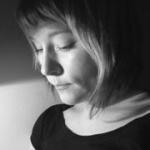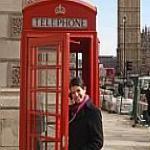22 December 2009
Erasmus Student Label competition yields two essay awards for Charles University
The National Agency for European Educational Programmes (NAEP), a part of the Centre for International Services of the Ministry of Education, Youth and Sports, has set up a competition in which students were to write an essay about their experiences abroad during the 2008/2009 run of the Erasmus programme. Students of Charles University placed first and third.
On November 19th, during the Day Without Frontiers event, Tereza Mácová and Zuzana Dvořáková received prizes for first and third place, respectively, from the minister of education, Mrs. Miroslava Kopicová.
|
|
|
|
Tereza Mácová, 4th year student of the Media Studies and Journalism undergraduate programme of Charles University Faculty of Social Sciences |
Zuzana Dvořáková, 2nd year student of the Media Studies and Journalism graduate programme of Charles University Faculty of Social Sciences |
How did you learn about the competition and why did you decide to take part?
|
TM I got an email from NAEP and decided to share my Erasmus experience. |
ZD I was contacted via email. The prizes or recognition did not play a huge role for me. I considered it an opportunity to think back and evaluate what studying in London meant to me. |
What school did you go to in your Erasmus year? What made you decide?
|
TM In the year of 2008/2009, I studied at the Jagiellonian University in Krakow. I was attending lectures at the Institute of Social Communication and Journalism, and also at the Institute of Audiovisual Media. I chose the school based on the city and country it is in. I wanted to learn more about Polish culture and learn to speak the language, and I think I accomplished it. |
ZD I studied at the Middlesex University in London for six months starting in January of 2009. The city itself played a big role for me. Many people want to study there and I don't think it is only because of the university programmes themselves. Choosing courses to attend was complicated, however – I came in the middle of the academic year and to sign up for courses, there are usually pre-requirements. My time in at the university was however very diverse. I attended the Faculty of Arts (although my former primary specialization was marketing and public relations) and took many courses including everything from English literature to management in music and art. |
How do you think your newly gained knowledge and experience will help you in further studies and your future life?
|
TM The language skills will undoubtedly help me in the future, both in school and in my future career, because I want to concentrate on Central Europe. The Erasmus experience is essential: It helps you find your bearings in a new environment, brings inspiration, broadens your scope and gives you new vantage points on many cultural and historical questions. It breaks the barriers of European stereotyping. |
ZD Thanks to the range of courses, I expanded my worldview and found my way into worlds I never knew existed. The life in such a big city changed my perspective and I started to consider Prague a small city rather than a metropolis. I must not forget that my English improved, because most of my friends there were native speakers. Studying abroad is not just something you may do – you have to do it. And I'm glad I've already fulfilled one of my goals in life. |
What's your most resounding memory of studying abroad?
|
TM It is incredibly hard to choose just one. But I won't forget hanging out with my friends. We were a group of six to eight, and while we could all speak English, we used Polish instead. (We're in Poland, so we should speak Polish, shouldn't we?) |
ZD I have many great memories, and that's why you go abroad in the first place. Thinking of a particular one, it would surely involve my friends from the dormitories. Once, we came to a club called The Church. It was not just a regular club, although you might think it would be in British environment. Here, the biggest party of the week always starts on Sunday at 11 am, which is really eccentric. The legend says that a long time ago, a young man came into a church, wearing jeans, smoking, drinking beers and using offensive language, which resulted in him being thrown out of the building. He was angry enough to start his own Church, a club in which all these offenses are not prohibited – they are even welcome. These days, you go to the Church preferably in crazy costumes, entry fee is seven pounds and you can buy beers in paper bags in front of the pulpit. And at the altar, there are dancers who barely resemble nuns. |
Lucie Kettnerová
Translation: Jaroslav Švelch


